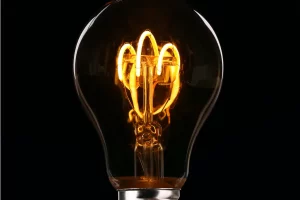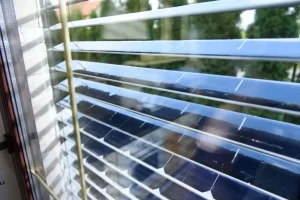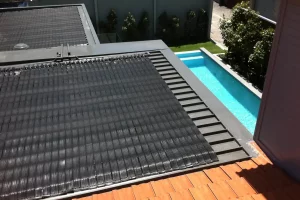Solar power has emerged as a reliable and sustainable solution for generating electricity. Whether you’re considering a small-scale solar system for your RV or embarking on a larger residential or commercial installation, one important decision you’ll face is choosing between 12V and 24V solar panels. Understanding the differences and advantages of each voltage option is crucial to designing an efficient and cost-effective solar power system tailored to your specific energy requirements.
This article aims to shed light on the factors you should consider when selecting between 12V and 24V solar panels. We’ll explore the unique characteristics of each voltage system, their respective applications, and the advantages they offer. By the end, you’ll be equipped with the knowledge needed to make an informed decision and embark on your solar energy journey with confidence.
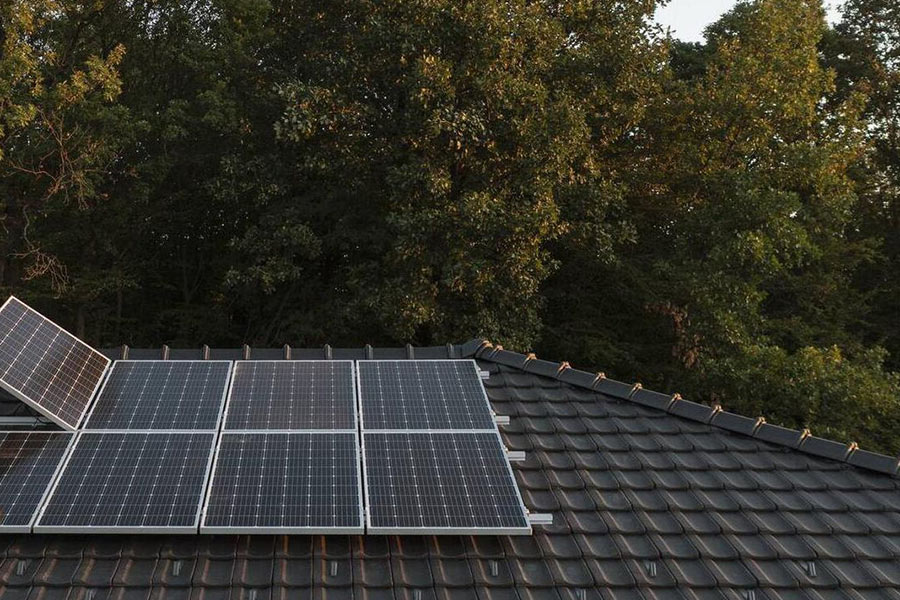
What is the difference between 12V and 24V solar panels
The difference between 12V and 24V solar panels lies in their voltage output.
A 12V solar panel is designed to produce a voltage output of around 12 volts. This voltage is commonly used in smaller-scale applications such as small solar power systems for charging batteries, powering low-voltage devices, or providing electricity for RVs, boats, and small off-grid cabins. 12V solar panels are generally more affordable and easier to install for small-scale projects.
On the other hand, a 24V solar panel is designed to produce a voltage output of around 24 volts. These panels are often used in larger-scale applications, such as residential and commercial solar power systems. They are suitable for systems that require higher power output and need to handle larger loads. 24V solar panels are commonly used in grid-tied systems, where the solar electricity generated is connected to the utility grid.
When deciding between 12V and 24V solar panels, it’s important to consider your specific energy requirements, the size of your system, and the devices or equipment you intend to power. Larger systems with higher power demands may benefit from the higher voltage output of 24V solar panels, while smaller systems with lower power needs may be adequately served by 12V panels.
How to choose between 12V and 24V solar panels
Choosing between 12V and 24V solar panels depends on several factors. Here are some considerations to help you make an informed decision:
Solar panel system power requirements
Determine your power requirements by calculating the total energy consumption of the devices or equipment you intend to power with the solar panels. Consider the wattage and hours of operation for each device. If your power requirements are relatively low, a 12V solar panel system may be sufficient. However, if you have higher power demands or plan to expand your system in the future, a 24V system may be more suitable.
Solar panel system size
Consider the size of your solar power system. If you have a smaller system, such as a portable solar setup for camping or RVs, a 12V system may be more practical and cost-effective. For larger systems, such as residential or commercial installations, a 24V system may be more appropriate to handle the higher power capacity.
Component Compatibility
Ensure that the rest of your system components, such as inverters, charge controllers, and batteries, are compatible with the chosen voltage. Some components are designed specifically for 12V systems, while others are designed for 24V systems. Ensure that all the components you select can handle the voltage of your chosen solar panel system.
Wiring Considerations between 24V and 12V solar panel systems
Consider the wiring requirements and limitations of your installation. Higher voltage systems, such as 24V, allow for longer cable runs with less voltage drop compared to 12V systems. This can be beneficial in larger installations where panels are located far away from the battery bank or the main load center.
Cost of 12V and 24V solar panel systems
Evaluate the cost of both 12V and 24V solar panels, as well as the associated components. Generally, 12V solar panels are more affordable and readily available due to their widespread use. However, it’s important to consider the overall cost of the entire system, including the additional components needed for either voltage system.
When to choose 12V solar panels
You may choose 12V solar panels in the following situations:
- Small-scale Systems. If you are setting up a small-scale solar power system, such as a portable solar charger for camping, a small off-grid cabin, or an RV, 12V solar panels can be a suitable choice. These systems typically have lower power requirements and are more compact in size.
- Lower Power Demands. If your energy consumption is relatively low and you don’t have a need for high power output, 12V solar panels can fulfill your requirements. Examples include powering small electronics, LED lighting, charging small batteries, or running basic appliances with low power needs.
- Cost Considerations. In general, 12V solar panels tend to be more affordable compared to 24V panels. If cost is a significant factor for your project, a 12V system can be a budget-friendly option.
- Compatibility. If you already have a system or components that are designed for 12V operation, it makes sense to stick with 12V solar panels to ensure compatibility. Switching to a higher voltage system would require replacing or modifying existing components, which can be costly.
- Limited Space. 12V solar panels are typically smaller in size compared to 24V panels. If you have limited space available for solar panel installation, 12V panels can be more suitable due to their compact footprint.
Remember that the choice between 12V and 24V solar panels depends on your specific needs and circumstances. It’s essential to evaluate your power requirements, available space, system compatibility, and budget constraints before making a decision.
When to choose 24V solar panels
You may choose 24V solar panels in the following situations:
- Larger-scale Systems. If you are setting up a larger-scale solar power system, such as a residential or commercial installation, 24V solar panels are often a more appropriate choice. These systems typically have higher power demands and require the ability to handle larger loads.
- High Power Output. If you have devices or appliances that require higher power levels, such as air conditioning units, large pumps, or heavy machinery, a 24V solar panel system can provide the necessary power output. The higher voltage allows for more efficient delivery of power to these high-demand devices.
- Expansion and Future-proofing. If you anticipate expanding your solar power system in the future, opting for a 24V system provides greater flexibility. It allows you to add more panels and increase your overall power capacity without having to reconfigure the entire system.
- Longer Cable Runs. If you have a significant distance between your solar panels and the battery bank or main load center, a 24V system can be advantageous. Higher voltage systems experience less voltage drop over longer cable runs compared to 12V systems. This reduces power loss and allows for more efficient transmission of electricity.
- Compatibility with Components. If you already have system components, such as inverters or charge controllers, that are designed for 24V operation, it makes sense to choose 24V solar panels to ensure compatibility. This avoids the need to replace or modify existing components.
- Efficiency Considerations. In some cases, higher voltage systems can offer slightly better efficiency compared to 12V systems. This can be beneficial in maximizing the energy production and overall performance of your solar power system.
Consider your specific power requirements, system size, future plans, component compatibility, and other factors when deciding whether to choose 24V solar panels.
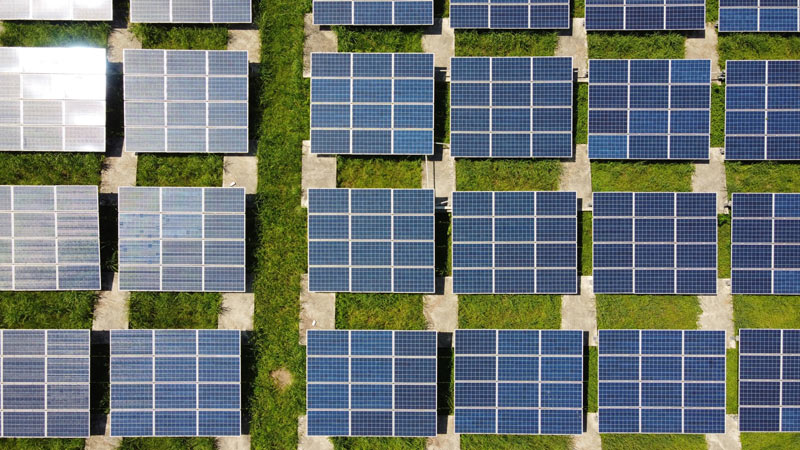
What are advantages of 12V solar panels compared to 24V solar panels
There are several advantages of 12V solar panels compared to 24V solar panels:
Generally, 12V solar panels tend to be more affordable compared to 24V panels. This is partly because 12V systems are more commonly used and have a wider availability of components in the market. If you have a limited budget or are working on a smaller-scale project, 12V solar panels can be a cost-effective option.
12V solar panels are often easier to install, especially for smaller-scale systems. Since they operate at a lower voltage, the wiring and connections are relatively simpler, making installation more straightforward. This can be beneficial for DIY installations or projects with limited technical expertise.
Due to their widespread use and popularity, 12V solar panels have a larger variety of compatible components available in the market. This includes charge controllers, inverters, batteries, and other system components. This greater availability makes it easier to find and source the necessary components for your system.
If you primarily need to power low-power devices, such as small electronics, LED lighting, or charging small batteries, 12V solar panels can be more suitable. These devices often operate at 12V or lower voltages, and using a 12V system eliminates the need for additional voltage conversion or step-down devices.
12V solar panels tend to be physically smaller in size compared to 24V panels. This compact size can be advantageous if you have limited installation space or if you require a portable solar solution for camping, RVs, or other mobile applications.
What are advantages of 24V solar panels compared to 12V solar panels
There are several advantages of 24V solar panels compared to 12V solar panels:
24V solar panels can offer slightly higher efficiency compared to 12V panels. This means that they can convert sunlight into electricity more efficiently, resulting in better overall energy production. Higher efficiency can be beneficial in maximizing the output of your solar power system.
24V solar panels produce a lower current compared to 12V panels for the same power output. This lower current reduces the resistive losses and voltage drop that occur over long cable runs, especially in larger systems. As a result, 24V systems are better suited for installations with longer wire distances, as they can maintain higher power delivery and minimize energy loss.
If you anticipate expanding your solar power system in the future, choosing a 24V system provides greater flexibility. Higher voltage systems allow for more panels to be connected in series, increasing the overall power capacity of the system. This scalability makes it easier to accommodate future growth without major reconfigurations.
24V solar panels are better suited for powering devices or appliances that have higher power demands. If you have heavy machinery, air conditioning units, or large pumps that require more electricity, a 24V system can provide the necessary power output and handle these larger loads efficiently.
While 12V solar panels may be more affordable for smaller-scale projects, in larger installations, 24V systems can offer cost advantages. Higher voltage systems allow for longer cable runs with reduced voltage drop, which can save on copper wire costs. Additionally, with higher power output, you may need fewer panels to achieve your energy production goals, resulting in cost savings.
So which voltage to choose – 24V or 12V for solar panel system
Choosing the right voltage for your solar panels, whether it be 12V or 24V, is a critical decision that can significantly impact the efficiency, cost, and overall performance of your solar power system. By evaluating your power requirements, system size, future plans, component compatibility, and other factors, you can make an informed decision that aligns with your unique needs and goals.
For smaller-scale systems with lower power demands and limited budgets, 12V solar panels can be a cost-effective and practical choice. They offer ease of installation, compatibility with low-power devices, and a wide range of affordable components in the market.
On the other hand, if you have larger power demands, anticipate system expansion, or require compatibility with existing 24V components, 24V solar panels offer advantages in terms of higher efficiency, reduced current losses over long cable runs, scalability, and the ability to handle larger loads.
